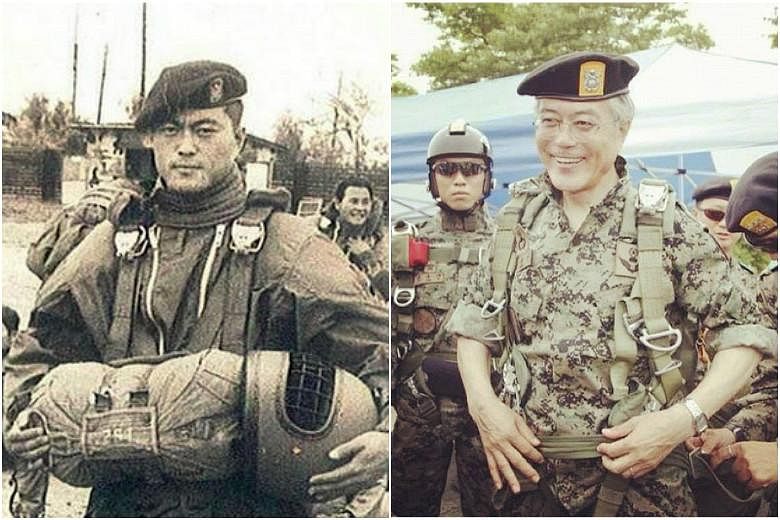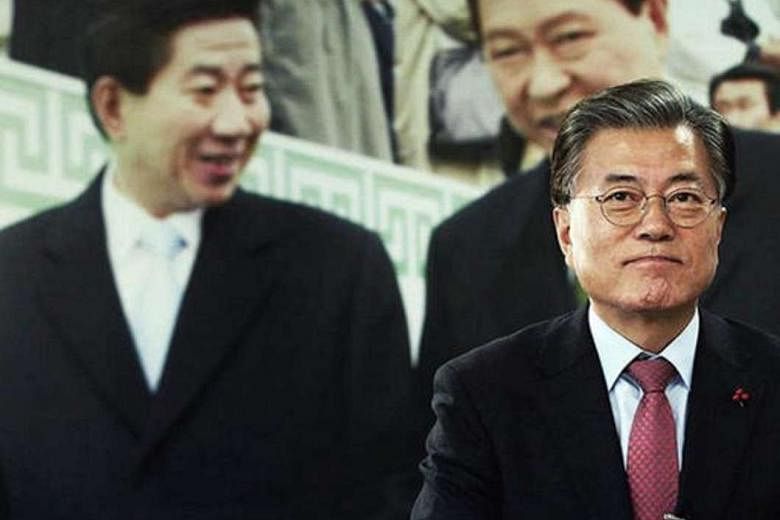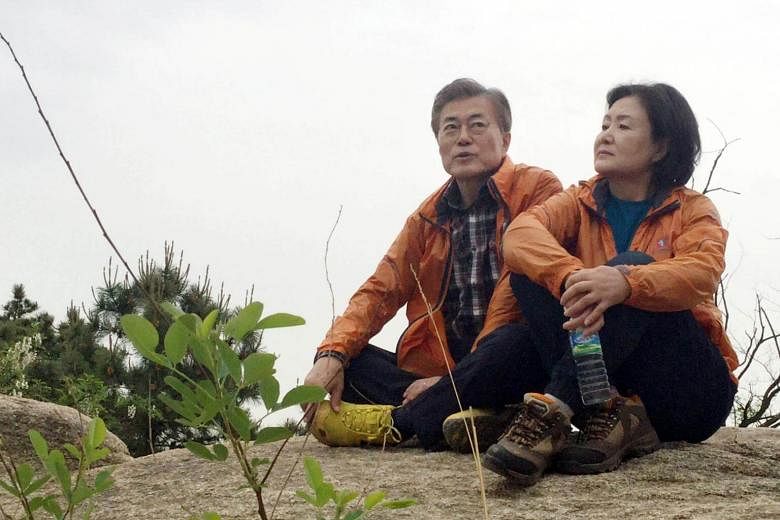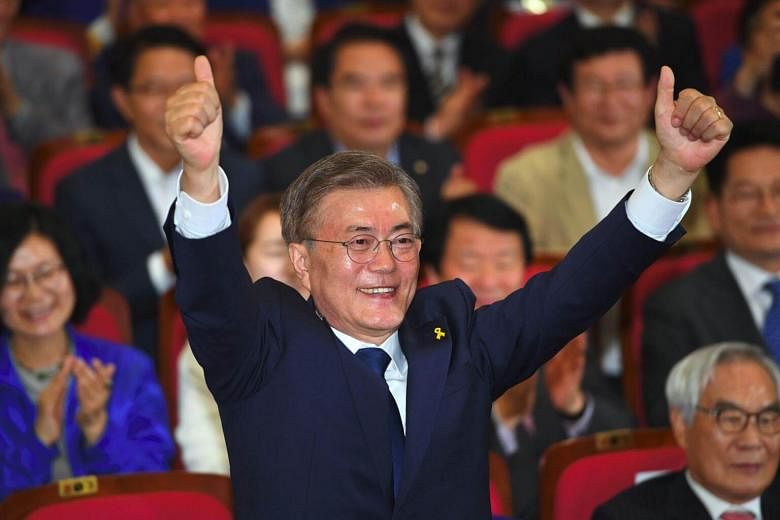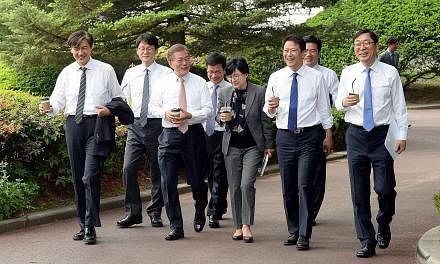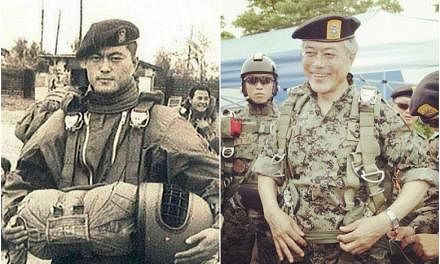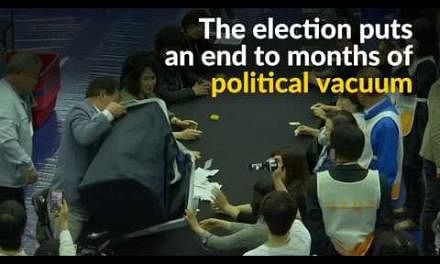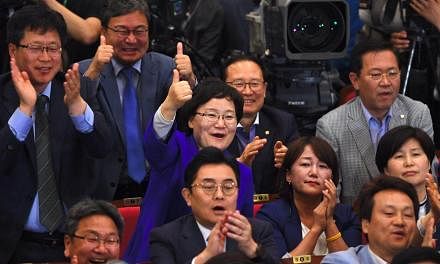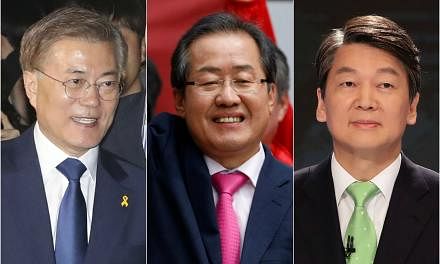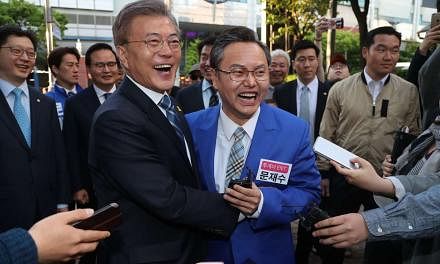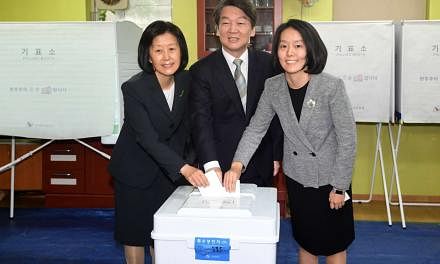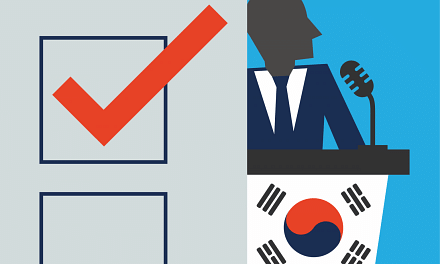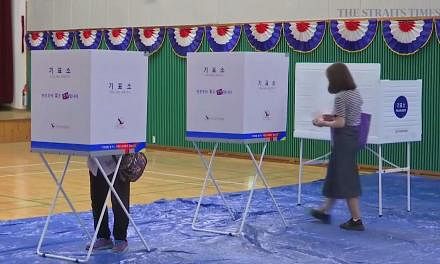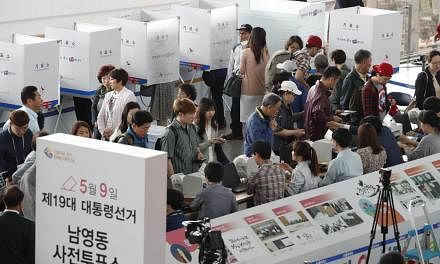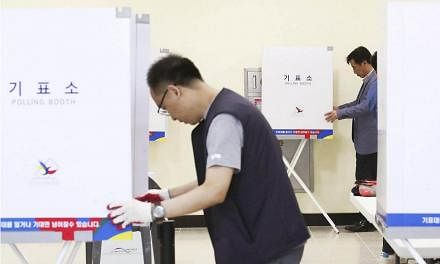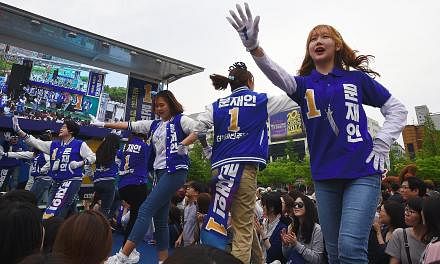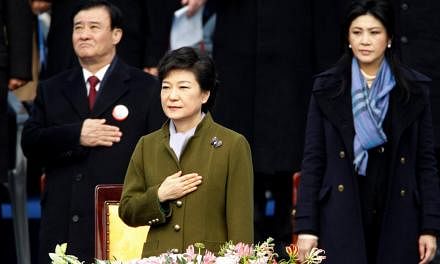In the 2012 presidential election, Mr Moon Jae In lost to former president Park Geun Hye by a mere 3.6 percentage points.
But Park's downfall over a corruption scandal - she was charged with bribery and other offences last month - is likely to propel Mr Moon, a former human rights lawyer, to the country's highest office in Tuesday's (May 9) presidential election.
An exit poll forecast a landslide victory for left-leaning Moon.
Born in 1953 to a North Korean refugee couple in Geoje city in south-eastern South Gyeongsang province, he and his four siblings grew up poor and, sometimes, he had to queue for relief goods distributed at churches. He was even thrown out of school for failing to pay his school fees.
Despite his travails, he studied hard and eventually made it to law school at Kyunghee University in 1972. While in university, he became a student activist and was arrested for organising a protest against the dictatorial policies of then President Park Chung Hee, the father of Park Geun Hye.
While behind bars, Mr Moon passed the bar exam in 1980. He became a lawyer and close friends with fellow lawyer and future president Roh Moo Hyun.
Though it was never his intention to enter politics, he was roped in as a key adviser to Mr Roh, who won the 2003 presidential election.
But Moon never felt comfortable being at the Blue House when he was a top aide to the president, according to Reuters.
He quit in 2004, a year into the job, and went on a long hike in the Himalayas. Although he would return to the presidential office a month later, the liberal idealist, who once dreamed of opening a pro-bono law practice in a Korea reunified with the North, says he has always been uneasy in the limelight.
Yet he was seen as the poised and reliable right-hand man who took it upon himself to organise Mr Roh's funeral after his suicide in 2009 over a corruption scandal.
In late 2011, Mr Moon joined the opposition Democratic United Party with the aim of continuing his friend's good work.
"(Roh) really defined my life. My life would have changed a lot if I didn't meet him. So he is my destiny," he wrote in his best-selling memoir, Moon Jae In - The Destiny.
The 64-year-old candidate from the liberal Democratic Party will soon find out if he is, indeed, destined to become South Korea's next president.
The odds are in his favour. He has consistently outranked his rivals in opinion polls, scoring 42.2 per cent in the latest Realmeter survey, more than double that of his rivals.
"I am the best-prepared presidential candidate who can overcome the economic, security and diplomatic crises facing South Korea," Mr Moon proclaimed on TV.
The country is in dire need of strong leadership to deal with North Korea's growing missile threats, implement bold reforms to invigorate a sluggish economy and eradicate social evils linked to Park's corruption scandal.
Mr Moon, a former special forces soldier, strongly believes he is the answer.
If elected, he promises to overhaul an archaic political system deeply rooted in corrupt practices, improve ties with North Korea, and build a more assertive South Korea that is less dependent on its security ally, the United States. He also plans to review the hasty deployment of a US missile shield that drew economic retaliation from China.
Some political watchers fear Mr Moon will be too soft on North Korean leader Kim Jong Un, and that he would clash with US President Donald Trump's hard-line approach.
But in a Washington Post interview, Mr Moon said his goals are in line with the US leader's.
"President Trump uses strong rhetoric towards North Korea, but...he also said he could talk over a burger with Kim Jong Un. I am for that kind of pragmatic approach to resolve the North Korean nuclear issue," he said.
Mr Moon's parents fled to South Korea during the 1950-53 Korean War. In 2004, when Mr Moon was serving in the Roh administration that sought rapprochement with the North, he accompanied his mother to a reunion of families separated by the war and met his aunt for the first time in about 50 years.
"My mother is 90 years old. Time is ticking. But her younger sister is still in the North. My mother's last wish is to see her again," he said in a recent Time magazine interview.
He also said he supports reunification, so people in the North don't have to suffer any more.
Sejong Institute analyst Lee Seong Hyon said Mr Moon is likely to use a carrot-and-stick approach to deal with Pyongyang, which he sees as "a wayward, problematic brother".
INTERACTIVE GRAPHICS
A look at the five main contenders and where they stand on key issues str.sg/skorea17who
